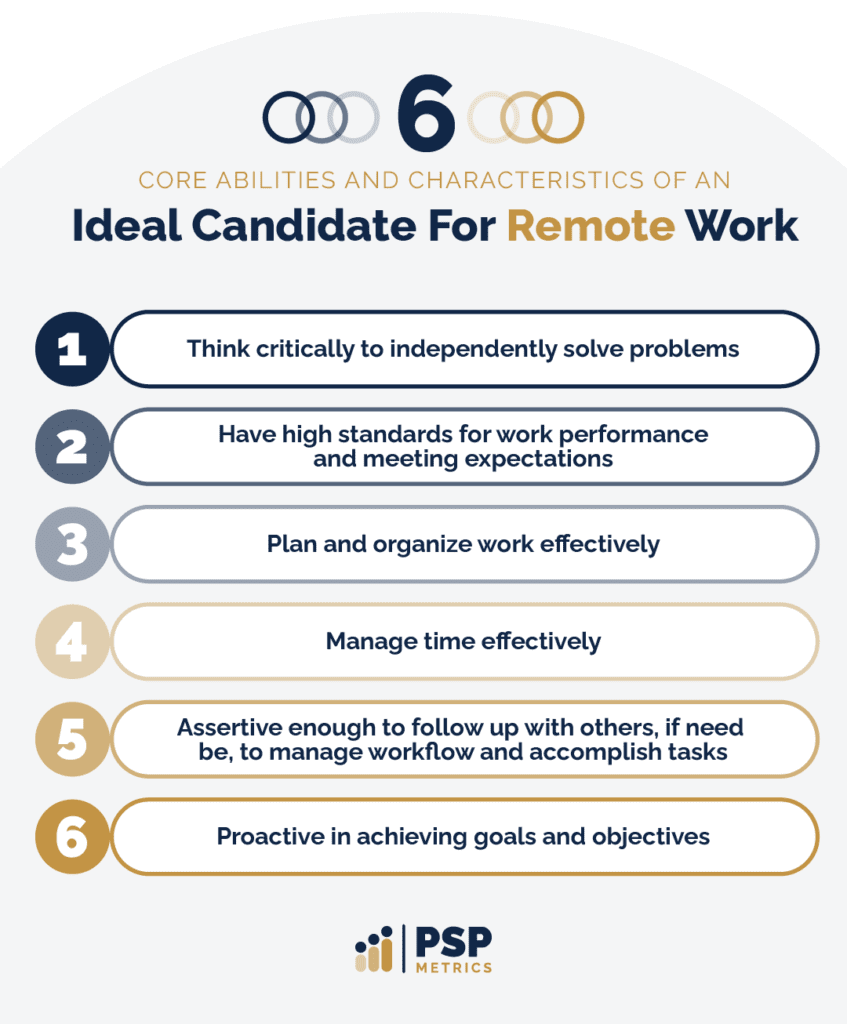Photo by Andrea Piacquadio
What Makes a Successful Remote Employee?
Flexplace/flextime, workplace flexibility, remote work, work from home – call it what you want, but even before Covid-19 catapulted most office-bound employees into, what felt like at the time, the cosmos of remote work, the trend of workers wanting flexibility in where, how, and when they work was already growing. Covid-19 simply forced employers to figure out how to manage a remote workforce. Now many workers are just flat out refusing to be required to show up to an office every day, if at all.
Remote Work Statistics
A February 2022 Pew Research Center study uncovered that 61% of US employees working from home were doing so by choice, versus the pre-pandemic rate of 23%. Remote work is no longer viewed as a perk and companies have had to adjust their thinking and policies to rise to the occasion and meet candidate expectations for flexibility.
Additional private-sector research has uncovered some interesting global remote work statistics.
- 16% of companies in the world are 100% remote.
- 44% of companies don’t allow remote work.
- 77% of remote workers say they’re more productive when working from home.
- Better work-life balance is the main reason why people choose to work remotely.
- 64% of workers said they would consider quitting their job if they were forced to return to the office full-time.
- 74% of workers say that having the option to work remotely would make them less likely to leave a company.
- 85% of managers believe that having teams with remote workers will become the new norm.
- The average annual income of remote workers is $4,000 higher than that of other workers.
- The three biggest challenges associated with remote work are unplugging after work (22%), loneliness (19%), and communication / collaboration (17%).
As companies are experiencing, the labor market is tight and meeting candidates’ expectations for remote work is a critical element to attracting the best talent. However, this reality only increases the risk of a bad hire and not everyone who wants to work remotely is able to do so effectively. Furthermore, leaders are not equally capable of managing a hybrid or remote team. Some are better at it than others.

Skills Needed For Hiring Remote Workers
Being effective when your team is decentralized requires a few key abilities and characteristics. First and foremost, remote workers must be independently computer/tech-savvy. If an employee relies heavily on others in the office to solve basic computer problems or use software effectively and is not willing to learn those skills, then they are not a good candidate for remote work. In this March Article on hiring for potential, it discusses the need to ensure employees are willing and able to learn. Clearly, beyond computer skills, remote work carries with it a necessity to be oriented to continuously learning on the job.
Beyond the table stakes of being tech-savvy, an ideal candidate for remote work will possess these six core abilities or characteristics:
- Think critically to independently solve problems
- Have high standards for work performance and meeting expectations
- Plan and organize work effectively
- Manage time effectively
- Assertive enough to follow up with others, if need be, to manage workflow and accomplish tasks
- Proactive in achieving goals and objectives

These six core abilities and characteristics apply to both remote individual contributors and managers alike. They are also difficult to assess when reviewing a resume or during an interview. Time in a role does not equate to successful job performance.

Testing Abilities For Remote Workers
The good news is that these abilities and characteristics are quite easily tested for with the right tool. Generating additional insights into personal characteristics and work behaviors that will manifest on the job is important when hiring an in-the-office role, but especially critical when hiring remote or hybrid employees. If a candidate is not capable of managing his or her time or planning their work effectively, the chances of the employee meeting performance expectations or meeting deadlines are low. If the candidate is not self-motivated to achieve goals and objectives or does not have high standards for his or her work, then the employer can expect lower quality of work and an increased need to manage the person.
Employers need to consider which of the abilities and characteristics are most important in the role and which can be developed on the job. It is rare for a candidate to match 100% of job requirements. For example, it is more critical for a manager to follow-up with direct reports on the status of their work than an individual contributor, so a candidate for a remote management role would need this characteristic to be a strength. A remote customer service representative might need less independent problem-solving abilities if they are provided with guides or handbooks than an executive assistant.

Remote Work is Here To Stay
In one form or another, for the foreseeable future. Hiring the right candidate was challenging before remote work was at the top of candidates’ list of considerations. Today, the ability to work effectively remotely is just one more factor that employers should be considering during the recruitment process.
Contact us today to drive performance through deep people insights!
Comments are closed.

